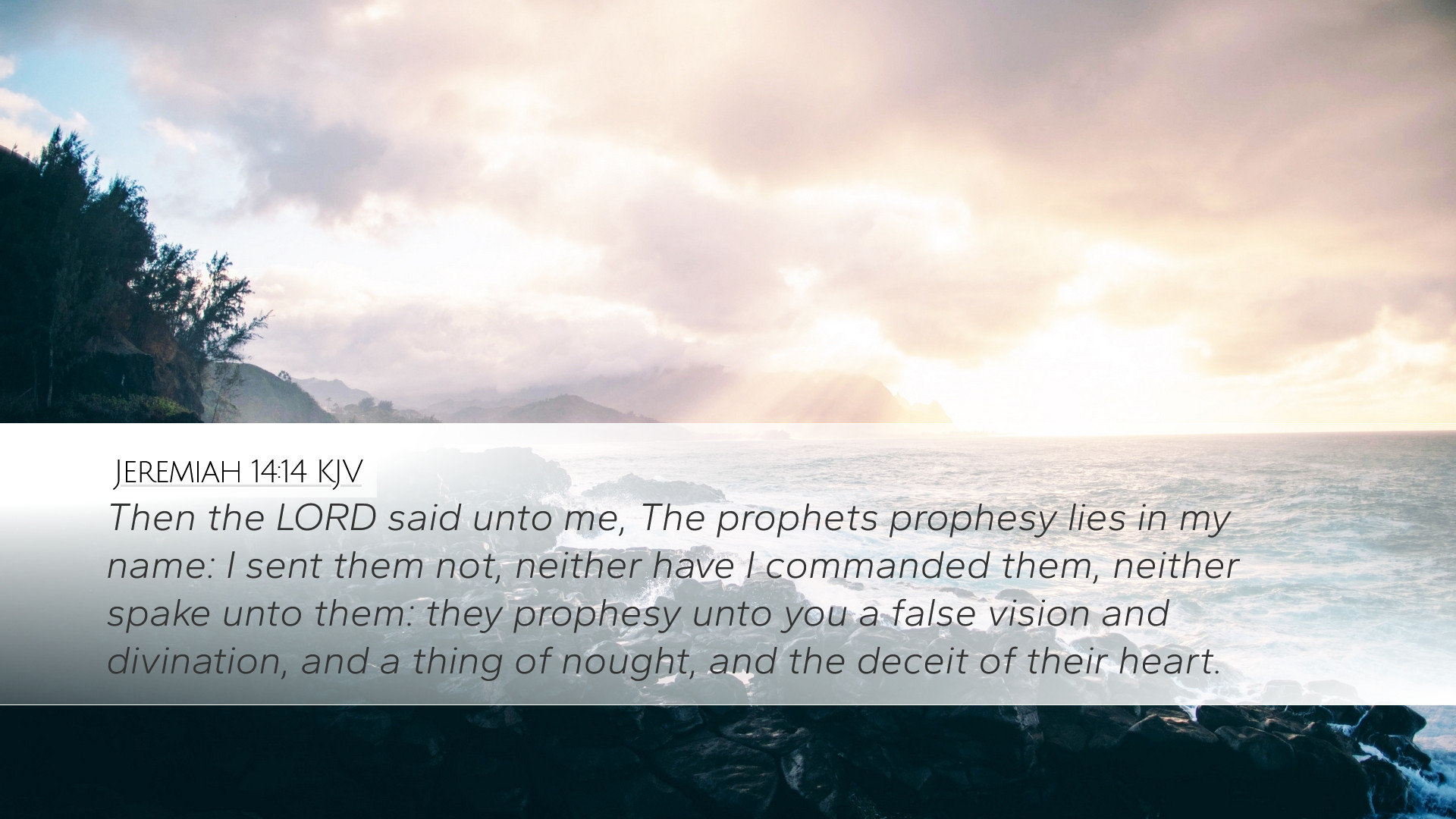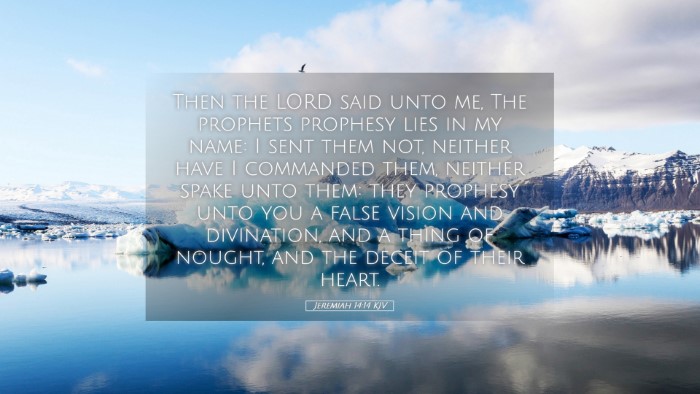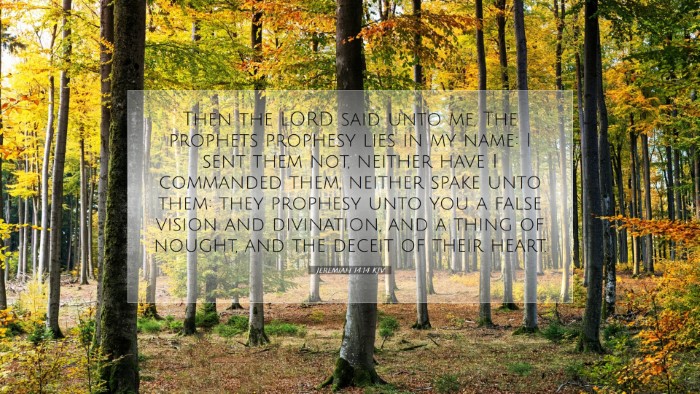Commentary on Jeremiah 14:14
Verse: "Then the Lord said to me, 'The prophets are prophesying lies in my name. I have not sent them or appointed them or spoken to them. They are prophesying to you false visions, worthless divinations, and the deception of their own minds.'” (Jeremiah 14:14, NIV)
Introduction
Jeremiah 14:14 is a profound verse that highlights the issue of false prophecy during a tumultuous time in Israel's history. The prophet Jeremiah, tasked with delivering God's messages to a stubborn people, finds himself contending with false prophets who mislead the populace with deceptive words.
This commentary synthesizes insights from renowned public domain commentators such as Matthew Henry, Albert Barnes, and Adam Clarke to explore the multifaceted implications of the verse.
Contextual Analysis
Historical Context: Jeremiah prophesied during a period of impending judgment and turmoil, marked by moral decay and national crisis. The people sought solace in the assurances provided by false prophets, who diverted attention from God's impending judgment.
Theological Context: This verse underlines a central theological theme in the prophetic literature: the necessity of discernment in hearing God’s voice and the dangers posed by self-serving declarations of "prophecy."
Commentary Insights
Matthew Henry’s Perspective
Matthew Henry emphasizes the solemnity of God's condemnation of false prophets. He highlights that these prophets are specifically called "liars," asserting that their messages are fabricated rather than divine revelations. Henry notes that such deceit is not only detrimental to the recipients but also leads to spiritual ruin and national calamity.
Albert Barnes’ Insights
Albert Barnes elaborates on the characteristics of the prophecies delivered by these false prophets, which he describes as "worthless divinations." He points out that the false prophets lack divine commission and thus are not only misleading the people but also misrepresenting the character and will of God. Barnes cautions the reader on the dangers of relying on human wisdom over divine truth, urging a return to scripture for genuine guidance.
Adam Clarke’s Analysis
Adam Clarke takes a linguistic approach, dissecting the language used in the verse. He affirms that the term "worthless divinations" indicates practices rooted in superstition rather than faith. Clarke emphasizes the juxtaposition between divine truth and human deception, urging believers to discern the source of prophecies and teachings. He underscores the importance of aligning with God’s true message, recognizing that self-declared prophets can lead to spiritual apostasy.
Theological Implications
The assertions made by Jeremiah in 14:14 are foundational for understanding the nature of divine callings versus self-appointed ministries. This scripture serves as a cautionary tale for both leaders and followers within the church.
- Authority of Divine Calling: The passage teaches that authenticity in ministry comes from divine mandate, not personal ambition. It presses upon church leaders the importance of seeking God’s will before proclaiming His messages.
- Discernment among Believers: Believers are called to engage in spiritual discernment, testing the spirits as advised in 1 John 4:1. This implies a proactive approach to understanding and validating spiritual teachings.
- The Nature of Prophecy: Prophecy is not merely predictive; it is rooted in the relationship between God and His people. This verse serves as a reminder of the covenant fidelity expected of God's messengers.
Application for Today
In the contemporary church context, the warning against false prophecy is ever relevant. Leaders and congregants alike must remain vigilant against teachings that divert from biblical truth. The teachings of Jeremiah challenge us to:
- Cultivate Discernment: Regular engagement with Scripture is essential for recognizing truth amidst falsehood.
- Embrace Accountability: Church leaders must seek accountability and mentorship in their ministries to remain aligned with God’s intentions.
- Promote Biblical Literacy: Encouraging the congregation to understand the Word can guard against deception and strengthen their faith.
Conclusion
Jeremiah 14:14 serves as a poignant reminder of the critical nature of true prophecy and the perils of falsehood. As students, pastors, and theologians reflect upon this verse, may they be inspired to foster environments of truth, accountability, and discernment within their spheres of influence. In an age inundated with conflicting messages, the call to safeguard biblical integrity is more vital than ever.


